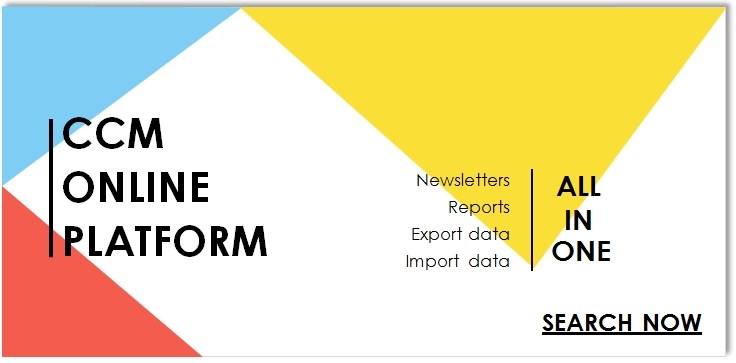On 30 March, Yili (Stock code: 600887) released its full-year 2015 financial
report. Specifically, it achieved sales of USD9.3 billion (RMB60.4 billion),
with net profit reaching USD720.6 million (RMB4.7 billion). Both sales and net
profit maintained double-digit growths. In addition, the gross profit margin from
the liquid milk and dairy products business was 36.7%, up by about 9.5 percentage
points. The average ROE (= Rate of Return on Common Stockholders’ Equity) was
up to 23.9%.
From this, Yili kept its No.1 position in the Asian dairy market and No.10 in
the global dairy market.
According to Nielsen, some 2015 Yili key figures are:
-
Proportion of sales of liquid milk in the
national figure: up by 2.5 percentage points YoY
-
Proportion of sales of fresh yoghurt in the
national figure: up by nearly 2.4 percentage points YoY
-
Sales of infant formula amongst
domestic-developed brands: still No. 1
-
Sales of cold drinks amongst
domestic-developed brands: still No.1
Accordingly, Yili’s sales of “high-tech and high-added-value” products made up
40% of the sales mix in 2015, ranking the company first in the domestic dairy
market. In addition to the stable growths in its star products such as Satine
(UHT milk), Shuhua Milk (UHT milk), Changqing (yoghurt), Mei Yi Tian (LAB
beverage) and Qiao Le Zi (ice cream), the sales of its innovative product
Ambrosial (UHT yoghurt) achieved a YoY growth of 460%.
Yili’s milk formula business realised a rise of 10% in sales, despite the
chaotic milk formula price system, aggressive sales promotions and the threat
by cross-border E-commerce. Specifically, its infant formulae brands Pro-Kido
and Tofer recorded a YoY increase in sales of 27% and 921% respectively.
Yili dwarfed Mengniu in terms of financial performance in 2015. In 2014,
Yili and Mengniu both reached the RMB50 billion sales level. However in
2015, Mengniu saw a YoY fall of 2% in sales, to USD7.5 billion (RMB49.0
billion) only - it has fallen out of the RMB50 billion list. In addition, its
net profit was slightly down by 0.7% to USD366.5 million (RMB2.4 billion).
Faced with such a huge difference - about USD1.7 billion (RMB10 billion)
compared to Yili - Mengniu said, “Such a trend follows with the market
trend.” Under the depressed market overall, it is difficult for Mengniu to
reach 2014 sales levels. In fact, many dairy companies have been impacted by
the sluggish market and recorded sales declines of different degrees.
-
China Modern Dairy Holdings Ltd: down by
56.3% in full-year net profit
-
Bright Dairy & Food Co., Ltd.: down by
47.3% in Q1-3 net profit

The fall in Mengniu's sales can also be attributed to the decline in its
subsidiary, Yashili International Holdings Ltd. (01230.HK), which is in charge
of the company's milk formula business. Yashili achieved sales of USD427.6
million (RMB2.8 billion), down by 22.3% YoY, with net profit down by 64.4% to
USD18.3 million (RMB118 million).
Trade sources commented that, in 2015, Yili made great efforts in developing
milk formula and premium UHT yoghurt, and increase its sales channels / product
promotions, whilst Mengniu was losing ground steadily.
Dairy expert Song Liang agreed, “Yili solidified its position in traditional
sales channels, by communicating with its distributors to enhance their
confidence in its milk formula. On the contrary, Yashili was impacted by doubt
about its milk formula from New Zealand, internal adjustments and delay in communication
with distributors. Specifically, the weak performance of Dumex it acquired set
back its and its parent company’s performance in milk formula.”
Yili accelerated its distribution coverage in lower-tier cities, resulting in
strong channel advantage in 4th/5th-tier cities and rapid growth in
distribution. In contrast, last year Mengniu began to adjust its channels, to
achieve channel flattening. This, including the optimisation in distributor
systems, had certain impact on its sales.
However, it is thought that, although at this time it was below the RMB50
billion level, its efforts in product and channel systems will enable it to
narrow the gap. In fact, the 2 dairy companies have no significant differences
in terms of product categories and channels.
Trade sources commented
that Yili also has its shortcomings, for example slow development in the
fresh dairy product category. At present there is a trend for large dairy
companies to increase the proportion of fresh dairy products in their product
mix. However, Yili even recorded a decline in its share of fresh dairy
products. Additionally, it is still reliant on traditional sales channels, and
conservative about expanding its E-commerce business.
This article comes from Dairy Products China News 1604, CCM

About CCM:
CCM is the leading market intelligence provider for China’s
agriculture, chemicals, food & ingredients and life science markets. Founded in 2001, CCM offers a
range of data and content solutions, from price and trade data to industry
newsletters and customized market research reports. Our clients include Monsanto,
DuPont, Shell, Bayer, and Syngenta. CCM is a brand of Kcomber Inc.
For more
information about CCM, please visit www.cnchemicals.com or get in touch with us directly by emailing econtact@cnchemicals.com or calling +86-20-37616606.